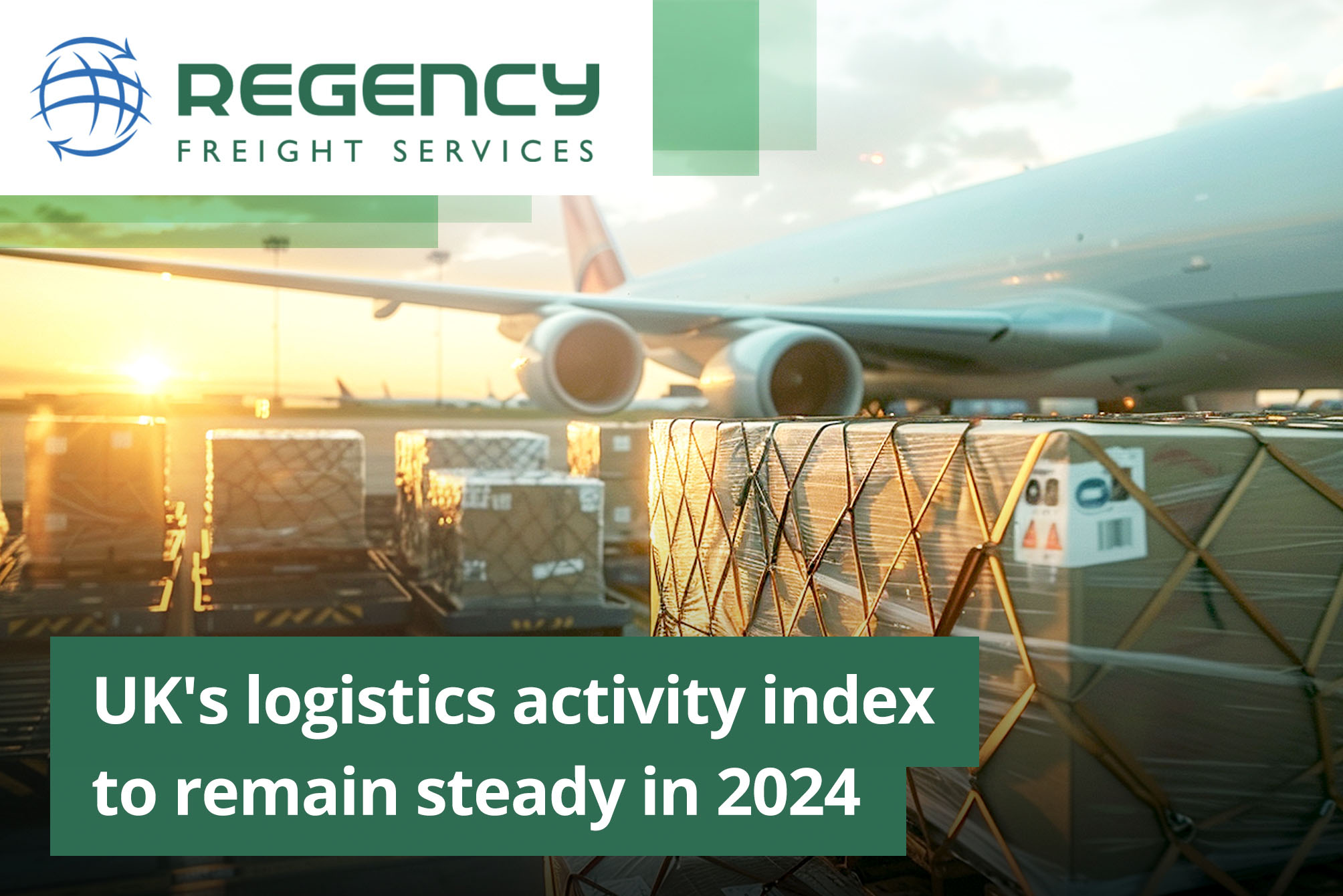UK Logistics Activity Outlook for 2024: Insights and Trends30 July 2024
The UK’s overall logistics activity index is expected to remain relatively stable in 2024 compared to 2023, according to a new report by Logistics UK. Road freight is projected to stay consistent, though warehouse-road activity may see a slight decline. However, rail freight is expected to experience robust growth. Sea freight sentiment shows a significant improvement, rising from 48.7 to 55.4, indicating a shift from negative to positive sentiment. Air freight is forecasted to see a dramatic increase from 28.3 to 64.6, suggesting substantial recovery. Global Integration and Trade Dynamics The UK is deeply integrated into the global market, with significant connections to major economies. Although imports of goods and services slightly decreased by £0.1 billion to £895.6 billion (approximately $1.1 trillion), exports saw a significant rise of £36.8 billion (4.6%) to £842.6 billion (approximately $1.06 trillion). This resulted in a trade deficit (excluding precious metals) of £53 billion (approximately $67.16 billion), narrowing by £36.7 billion compared to the previous year. Adjusted for inflation, imports declined by £6.5 billion to £741.5 billion, and exports grew by £3.9 billion to £690.8 billion. Industry Sentiment and Economic Outlook According to Logistics UK’s Industry Survey, 38% of respondents anticipate economic improvement for 2024 compared to 2023. However, this year has been more about consolidation rather than growth. “It is clear that our industry is still operating in challenging conditions, but the report paints a picture of a sector consolidating and preparing to exploit opportunities when the overall economy improves. The £185 billion GVA contribution our sector made in 2022 aligns with the 2021 figure of £160.2 billion, considering other factors. It is too soon to declare the economy is returning to growth,” said Logistics UK chief executive, David Wells OBE. Global Trade and Freight Activity Global maritime trade volumes decreased by 0.4% in 2022 but are estimated to have recovered by 2.4% in 2023, with growth rates of 3 to 4% expected in 2024 and 2025. Air freight activity sentiment for exports and imports across various regions showed a significant positive shift from 2023 to 2024. Some temporary port congestion is anticipated when the Red Sea crisis ends, as ships rerouting via the Cape of Good Hope converge with those passing through the Suez Canal, leading to potential congestion in Northern Europe. Market Trends and Operational Focus The current economic landscape is likely to influence demand for haulage, distribution, and just-in-time deliveries. As staff shortages stabilize, logistics firms are focusing on employee retention and handling more operations in-house. Rates for road, rail, sea, air, and warehouses are expected to increase slightly in 2024 compared to 2023. Air freight demand is projected to grow by 4.5% in 2024, though pressure on rates might reduce revenues by around 17.3% year-on-year. Decarbonisation and Investment In terms of progress around decarbonisation, greenhouse gas emissions are falling. Overall, domestic transport emitted 111.6 MtCO2e in 2023, a decrease of 1.4% compared to 2022. This marks the first time domestic transport emissions have fallen since 2020. Despite this drop, transport remains the largest source of UK greenhouse gas emissions, primarily due to the use of petrol and diesel in road vehicles, particularly passenger cars. High costs for low carbon fuels, insufficient infrastructure for electrification, and patchwork regulations remain key barriers to decarbonising freight. According to the Logistics Industry Survey, 62.9% of respondents plan to invest the same amount in alternative fuels in 2024 as they did last year, while 28.8% plan to invest more. Looking ahead, respondents emphasized the need for government support, with more than half advocating for a cut in fuel duty. Logistics UK has long argued that keeping fuel duty down is crucial for enabling businesses to invest, including in decarbonisation. Other suggestions for government support include reducing bureaucracy and improving infrastructure, regulations, and support services. Source: Fibre2Fashion |
|
   |
